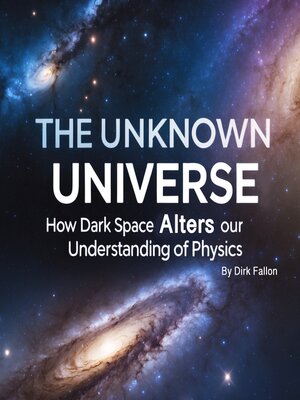The Unknown Universe
audiobook (Unabridged) ∣ How Dark Space Alters Our Understanding of Physics
By Dirk Fallon

Sign up to save your library
With an OverDrive account, you can save your favorite libraries for at-a-glance information about availability. Find out more about OverDrive accounts.
Find this title in Libby, the library reading app by OverDrive.



Search for a digital library with this title
Title found at these libraries:
| Library Name | Distance |
|---|---|
| Loading... |
The concept of dark space challenges the fundamental ideas that have shaped our understanding of the universe. It represents an arena where classical physics gives way to modern theories, and the behavior of matter and energy diverges from the patterns we witness in the observable cosmos. The exploration of dark space begins with the study of phenomena that remain unseen, defying explanation by the familiar laws of gravity and electromagnetism. These early observations laid the groundwork for an evolving narrative, one that demands a deeper inquiry into the nature of the universe.
In the early years of astrophysical studies, astronomers noted that stars and galaxies did not behave as expected under the influence of the visible matter alone. The gravitational pull observed in many astronomical systems suggested there was a missing mass, an invisible component exerting a force that could only be hypothesized. This realization propelled the scientific community into a series of investigations that spanned decades, eventually coalescing into the idea that the universe is infused with a mysterious, shadowy substance. Dark space, as it came to be known, did not just reside in the periphery of known celestial structures but actively shaped the evolution and clustering of galaxies.
A significant development in understanding dark space was its relation to the fabric of space-time, a concept introduced through the groundbreaking work of theoretical physicists. The theoretical framework of general relativity, which redefined gravity as the curvature of space-time, provided an initial platform for conceptualizing how dark space might interact with the known universe. If dark space influences the gravitational dynamics of visible matter, then its presence must be essential in explaining the anomalies observed in galactic rotations and the distribution of matter at cosmic scales.







